- Make It Yourself Lavender Heart-Shaped Bath Bombs!
- 20 Things You Never Knew About “Down There”
- 12 Best Foods For Those Suffering From Arthritis Pain
- 12 Personal Hygiene Mistakes Almost Everyone Makes (Mom Never Told You About #4!)
- 15 Medicinal Plants And Herbs From The Cherokee People
- 12 Mind-Blowing Benefits Of Drinking Coconut Water During Pregnancy
- 12 Outstanding Winter Foods That Won’t Fatten You Up Like A Christmas Turkey
12 Ways to Lower Your Risk of Osteoporosis (Ladies, This is Vital Info!)
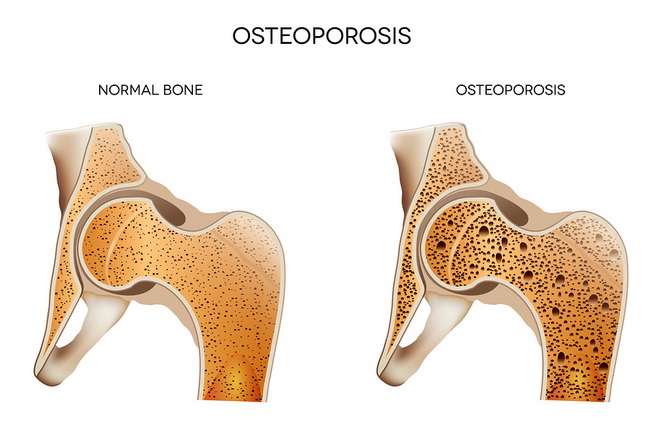
Photo credit: bigstock.com
Although it’s true that osteoporosis can affect anyone, it generally affects women, especially post-menopausal women. It’s been estimated that about 10 million Americans have osteoporosis, with another 30 million estimated to have low bone density, which greatly increases their risk for developing osteoporosis.
Breaking hip and leg bones used to be quite common and was thought to be a normal sign of aging. We now know that this is anything but normal. Simple healthy lifestyle and diet changes can prevent osteoporosis. The sad fact is, however, that most people don’t know this. In fact, one poll showed that only 27 percent of women knew that a healthy diet could impact their bone strength.
The key to osteoporosis is prevention. Eating a healthy, calcium rich diet, along with sufficient vitamin D and weight bearing exercise, can prevent osteoporosis before it becomes a problem. The body can repair a broken bone at any age, but it is far better to keep your bones strong, dense, and healthy than to try to reverse this disease after it’s started.
Keep in mind that eating calcium is not enough. You need plenty of vitamin D as well for your body to properly absorb calcium. Get a minimum of 15 minutes of natural sunlight each day (30 minutes would be better), if possible. If there is some reason that you cannot get natural sunlight, take at least 400 IUs of vitamin D each day.
Want to avoid osteoporosis and weak bones as you age? It’s what you do now that matters later on. Keep reading and find out the 12 best ways to stop osteoporosis before it starts.
1. Are You Taking Medication?
Some prescription medication negatively affects your bones. If you have an autoimmune condition, such as lupus or rheumatoid arthritis, or if you will need to take corticosteroids for a long time, ask your doctor about the effects of your medication on your bone health. There might be alternatives that won’t be as damaging to your bones. If you have already been on medications for a while, you might want to ask your doctor about checking for osteoporosis with a bone density screening.

Photo credit: bigstock.com
2. The No Brainer
You can reduce your risk of osteoporosis by eating more calcium-rich foods and increasing your calcium intake. Some of the best choices for calcium are:
- Calcium fortified whole grain cereals
- Milk
- Soy beans and soy products like tofu
- Calcium fortified orange juice
- Yogurt
- Cheese
- Spinach
- Turnips
- Collard greens
- Kale
- Sardines
- Black strap molasses
- Soy milk
- Rice milk
- Almond milk
Depending on your age, you will need the following amounts of calcium daily:
- 1 to 3 years – 700 mg each day
- 4 to 8 years – 1,000 mg
- 9 to 18 years – 1,300 mg
- 19 to 50 years – 1,000 mg
- 51 to 70 mgs – 1,200 mg for women – 1,000 mg for men
- 71+ years – 1,200 mg
Just one cup of calcium fortified soy milk, almond milk, or orange juice has about 300 mg of calcium, so it’s easier than you think to get the calcium you need each day. And don’t forget that vitamin D!
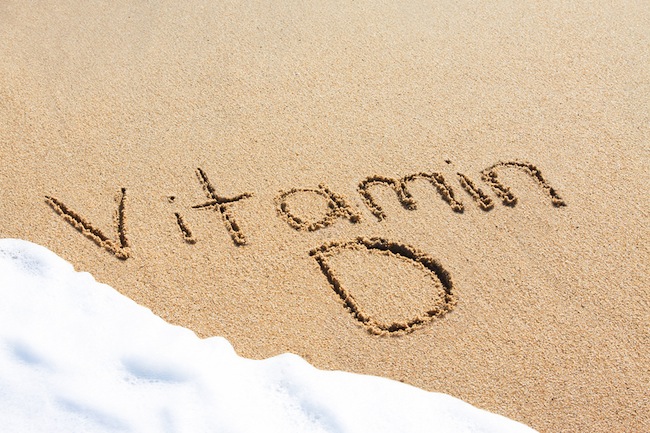
Photo credit: bigstock.com
3. Speaking of Vitamin D
As we said, you should try to get your vitamin D through the sun, but you can also get it via foods that are rich in vitamin D such as:
- Fatty fish like trout, halibut, and salmon
- Eggs
- Butter (real butter, not margarine)
- Cheese
- Liver
- Oysters
- Shrimp
- Fortified whole grain cereal
- Fortified milk
Try adding at least one of these items to your diet each day to ensure that you are getting sufficient amounts of vitamin D.

Photo credit: bigstock.com
4. Moderate the Alcohol
Yes, when you are young and feeling your oats, alcohol sounds like a good time. But too much alcohol on a regular basis not only slowly poisons your body, but it is also a major contributor to bone loss.
SEE ALSO: How Alcohol Affects The Body Infographic
One glass of wine each day for women and two for men actually strengthens bones, so you don’t have to be a teetotaler, but try to limit yourself to that.
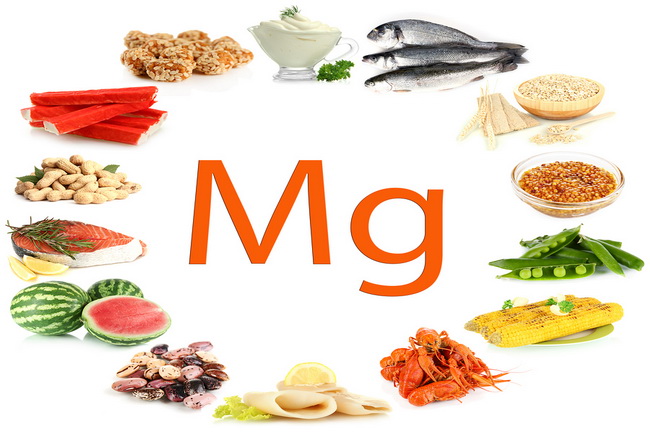
Photo credit: bigstock.com
5. Get Your Magnesium On
Magnesium is another important mineral that is essential for the proper absorption of calcium. Magnesium allows the intestines to absorb the most calcium possible while allowing the kidneys to remove any excess, so that it does not build up and become stones. Like vitamin D, without sufficient magnesium, no matter how much calcium you try to consume, you can still be calcium deficient. The problem with magnesium is that it is difficult for the body to absorb, and it doesn’t store much of it either, so it’s vital that you find ways to add more magnesium to your diet. Some of the best dietary sources of magnesium are:
- Cashews
- Sesame seeds
- Whole grains
- Cucumbers
- Sea vegetables
- Mustard greens
- Summer squash
- Spinach
- Swiss chard
- Turnips
- Broccoli
- Avocados
- Green beans
- Almonds
- Pumpkin seeds
You can take a supplement, but these are difficult for the body to absorb. Another way to get your magnesium is to take an Epsom salt bath two or three times each week. Epsom salt is actually flakes of magnesium, and your body easily absorbs this through the skin. Add 2 cups of Epsom salt to your bath and soak for 20 minutes. It’s as easy as that.
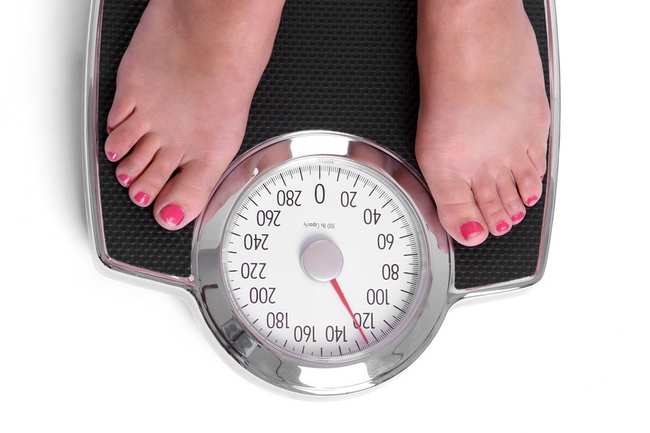
Photo credit: bigstock.com
6. Maintain a Healthy Weight
Your bones can stay dense and healthy more easily if you are not underweight or overweight. Revamp your diet so that you have all the energy you need to remain active. Work to eat a mainly plant-based diet filled with healthy fats and some lean, free-range meats.
Get at least 30 minutes of exercise each day and drink plenty of clean, fresh water. If you have trouble losing weight, speak to your doctor.

Photo credit: bigstock.com
7. Sunlight
As we mentioned before, getting sufficient amounts of vitamin D will help your body absorb calcium as well as regulate it in the blood. You need about 400 IUs of vitamin D each day. Your body will also synthesize vitamin D when your skin is exposed to the sun. The best sunlight is in the early morning hours before 10 AM. Avoid the sun between the hours of 10 AM and 4 PM, as this is when the sun’s rays are the strongest.
You won’t get more vitamin D by going out during those hours. Opt for 30 minutes of early morning sun exposure every day for optimum vitamin D levels, and optimum calcium absorption.

Photo credit: bigstock.com
8. Engage in Weight Bearing Exercises
Although all moderate exercise is good for your body, the importance of weight bearing exercises cannot be emphasized enough. The best weight bearing exercises include:
- Aerobics
- Jumping rope
- Walking
- Running
- Jogging
- Strength training (weights)
- Yoga
- Aerobic dancing such as Zumba or Jazzercise
Any type of exercise that makes your bones support the weight of your body will strengthen your bones and keep them dense. Hard, dense bones are much more difficult to break than thin, porous bones. Aim to get at least 30 minutes of weight bearing exercise most days of the week.
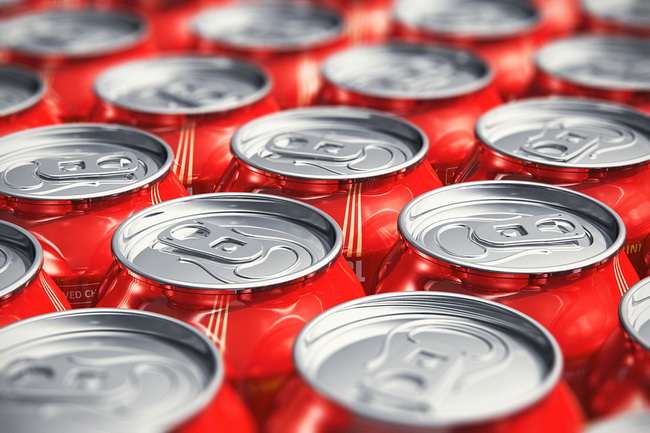
Photo credit: bigstock.com
9. Stop Drinking Soda
All sodas, including diet, decaffeinated, and fruit flavored sodas, interfere with the absorption of calcium. To ensure that your bones stay their strongest, avoid excessive consumption of sodas. For the best health, it really is in your best interest to ditch sodas all together, but if for no other reason than to avoid osteoporosis, you should extremely limit your consumption of soda.
Sodas contain compounds called phosphates, which leech the calcium from your bones and increase the rate at which it is removed from the body via urine. High levels of phosphate in the blood also prevent your body from absorbing calcium properly. Drink more water, herbal teas, fortified juices, milk, and smoothies.
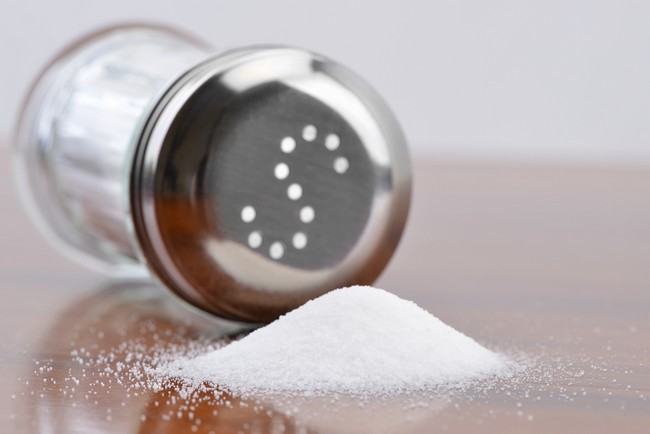
Photo credit: bigstock.com
10. Avoid High Sodium Diets
Eating excessive amounts of salt can not only cause high blood pressure, it can also contribute to the loss of calcium. A high salt diet prevents your body from absorbing calcium and actually removes calcium from the bones, which your body will excrete through your urine.
Try using fresh herbs and spices to flavor your food, rather than relying on salt. Garlic, turmeric, ginger, onions, and other healthy spices can flavor your food as well as offer you numerous health benefits.

Photo credit: bigstock.com
11. Avoid Excessive Amounts of Caffeine
Caffeine leeches calcium from your bones, which can sap their strength and density. Many phttp://www.ncbi.nlm.nih.gov/pubmed/1331782eople drink several cups of coffee in the morning, and sometimes a few more in the afternoon, but you might want to start thinking about decaf. Coffee does offer us some important health benefits, but excessive amounts of caffeine are not a good thing for your bone health.
So enjoy a cup or two in the morning to get that boost we all crave, but afterwards, make a pot of decaf or switch to green tea or decaffeinated herbal teas for the remainder of the day.
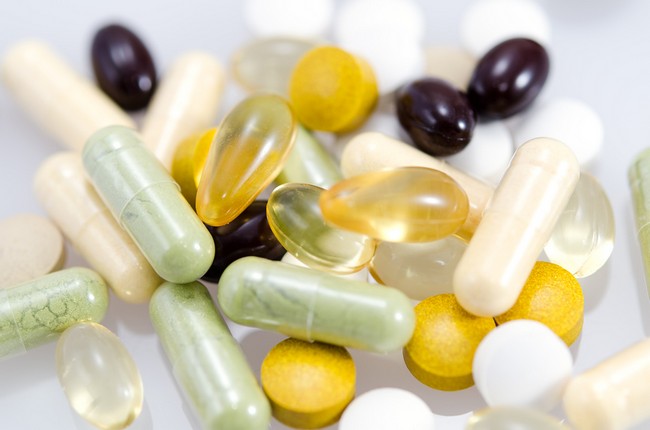
Photo credit: bigstock.com
12. Try a Supplement
For some people, trying to cut back on calories to control weight means that calcium levels take a dive. Although it is better to get your calcium, vitamin D, and magnesium from the foods you eat, sometimes this just isn’t possible. If this is the case, talk to your doctor about the appropriate dose for you. You should never just gulp supplements without talking to your doctor, since everyone’s body is different. Your age, weight, health status (do you have heart problems or heart disease?), family history (do gall stones or kidney stones run in your family?), lifestyle (are you pregnant? Do you plan on becoming pregnant? Are you going through menopause?), as well as any medications you might be taking, all make a difference in the type of supplement and the dosage you need. High doses of calcium can cause health problems, so please speak to your doctor before you choose a supplement.
Many people believe that osteoporosis is either inevitable or they believe that it won’t happen to them. Both ways of thinking are flawed and would be a serious mistake. Death and taxes cannot be avoided, but osteoporosis can.
References:
































